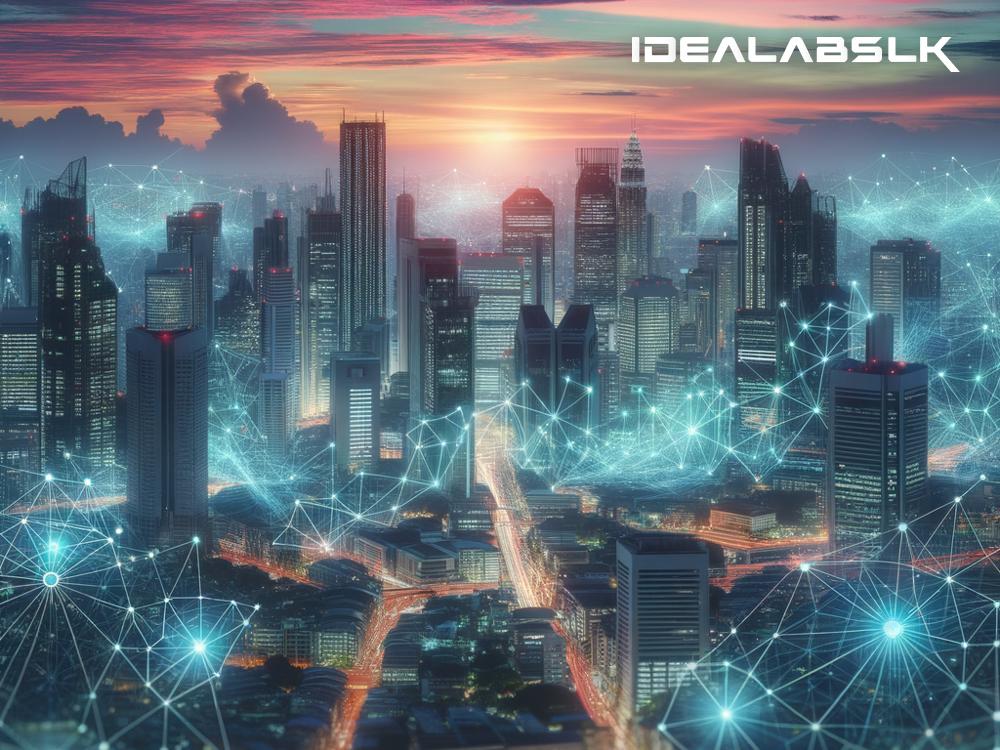How AI Will Shape the Future of Global Development
In the intricate tapestry of today’s world, where technology seems to dance at the edge of tomorrow, artificial intelligence (AI) emerges as a beacon of progress and promise. It's like a brilliant friend who can calculate, analyze, and even predict faster than we ever could. This friend, AI, isn't just changing individual lives but is also on the brink of transforming the global stage. Let's explore how AI will shape the future of global development in a way that's easy to understand, highlighting its potential to foster growth, address longstanding challenges, and create a world where everyone has the opportunity to thrive.
Breaking Down Complex Problems
Imagine trying to solve a thousand-piece puzzle. Daunting, right? Now, imagine having a friend who could help you see where each piece goes, accelerating the process. That's what AI does for global development. It takes complex issues like poverty, health crises, and climate change and breaks them down into more manageable parts. By processing vast amounts of data and identifying patterns, AI proposes solutions that humans alone might take years to discover. This way, efforts can be tailored more effectively, ushering in a more strategic approach to development.
Revolutionizing Agriculture
Agriculture feeds our world, but it's also a sector facing immense challenges from climate change, pests, and diseases. Here's where AI steps in like a seasoned farmer with a tech-savvy edge. Through AI, farmers can gain insights into when to plant crops, how to optimize water usage, and ways to combat pests more effectively. Imagine drones flying over fields, analyzing the health of crops, and offering real-time solutions to increase yield. This isn't a distant dream but a rapidly approaching reality. As a result, food security strengthens, and communities can look forward to a future where hunger is a fading shadow.
Enhancing Healthcare Globally
Access to healthcare is a universal necessity, yet many regions struggle with limited resources. AI has the power to revolutionize this sector by bringing medical expertise to the most remote corners of the world. Through AI-powered apps and diagnostic tools, people in underserved areas can receive expert health advice and even preliminary diagnoses, bridging the gap between scarce resources and medical needs. Furthermore, AI helps in the rapid development of new medicines and treatments, making healthcare more accessible and affordable for everyone.
Protecting the Environment
Our planet is our home, necessitating its protection and the preservation of its natural beauty for future generations. AI contributes significantly to environmental conservation by monitoring deforestation, tracking wildlife, and predicting natural disasters. This advanced warning system enables more efficient responses to natural calamities, saving lives and reducing damage. Moreover, AI helps identify areas where renewable energy can be most effectively harnessed, paving the way for a sustainable and green future.
Streamlining Education and Skills Training
Education is the foundation upon which we build our future, yet access to quality learning is not equal. AI can democratize this access by offering personalized learning experiences through platforms that adapt to each learner's pace and style. Moreover, in a fast-evolving job market, AI-driven programs can help individuals upskill or reskill, ensuring that the workforce remains competitive and innovative. As a result, societies become more resilient, capable, and forward-thinking.
Fostering Global Connectivity
At its core, global development is about connectivity and collaboration. AI enhances this by making communication more accessible and breaking down language barriers. Real-time translation services and platforms that connect people from different parts of the world foster a sense of global unity and shared purpose. Through these connections, ideas spread, collaborations form, and a collective effort towards a sustainable future becomes more tangible.
Navigating the Challenges
While the potential benefits of AI are vast, it's also important to tread carefully. Ethical considerations, privacy concerns, and the risk of exacerbating inequalities must be addressed. Thus, as we harness AI's power for global development, a balanced approach that considers these factors is essential.
The Road Ahead
The future shaped by AI holds immense promise, and its impact on global development could be revolutionary. It's about harnessing this technology with wisdom, ensuring that its benefits reach all corners of the globe, and making decisions that are ethically sound and inclusively beneficial. As we stand on the brink of this new era, it's clear that AI isn't just about machines and algorithms—it's about creating a world where everyone has the opportunity to thrive.
In conclusion, AI is not just a technological marvel but a key player in the future of global development. Its ability to solve complex problems, enhance agriculture, revolutionize healthcare, protect the environment, streamline education, and foster global connectivity showcases its potential to create a more equitable, sustainable, and prosperous world for all. As we navigate this journey, the collective endeavor must be towards harnessing AI's power responsibly, ensuring a future that shines brightly for generations to come.

